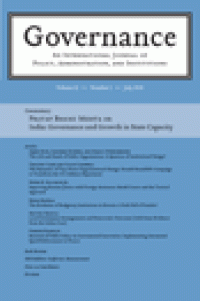
Journal Articles
The Aversion to Direct Cost Imposition: Selecting Climate Policy Tools in the United States
Numerous policy tools could be employed in attempting to mitigate climate change through reducing greenhouse gas emissions. Direct cost imposition through the taxation of carbon content of fossil fuels has long enjoyed support from diverse policy analysts but has proven highly difficult to advance politically in the United States and many other nations. This article considers the evolving American experience in climate policy tool selection, including extended engagement by many states over the past decade and growing federal involvement in recent Congresses. It demonstrates the enduring aversion to direct cost imposition as opposed to other policy options. This includes a brief period in late 2008 and early 2009 when prospects for direct cost imposition heightened markedly at the federal level but collapsed quickly in favor of a mélange of other approaches that are likely to be less efficient but also less direct in their imposition of costs. The article concludes with considerations of other methods to advance direct cost imposition in the American case.
Availability
No copy data
Detail Information
- Series Title
-
Governance
- Call Number
-
-
- Publisher
- Hoboken, United States : Wiley-Blackwell., 2010
- Collation
-
-
- Language
-
English
- ISBN/ISSN
-
09521895
- Classification
-
-
- Content Type
-
-
- Media Type
-
-
- Carrier Type
-
-
- Edition
-
Volume 23, Issue 4, October 2010, pages 583–608
- Subject(s)
- Specific Detail Info
-
-
- Statement of Responsibility
-
-
Other version/related
No other version available
File Attachment
Comments
You must be logged in to post a comment
 Computer Science, Information & General Works
Computer Science, Information & General Works  Philosophy & Psychology
Philosophy & Psychology  Religion
Religion  Social Sciences
Social Sciences  Language
Language  Pure Science
Pure Science  Applied Sciences
Applied Sciences  Art & Recreation
Art & Recreation  Literature
Literature  History & Geography
History & Geography